The exchange program taking place in the provinces of Noord-Brabant, Zeeland (The Netherlands) and Flanders (Belgium) offers young history enthusiasts the opportunity to delve deep into the historical events that shaped our modern world, providing an immersive experience in regions profoundly affected by the war. Participants will engage in a variety of creative projects, including video production, podcast creation, and historical storytelling, enabling them to explore and express the human stories behind the conflict.
As the exchange traverses the landscapes where pivotal battles were fought, participants will gain invaluable insights into the war’s legacy. This program isn’t just about learning history; it’s about bringing it to life through modern media. As a participant, you’ll work collaboratively with fellow participants, sharing perspectives and improving your skills in storytelling and digital media.
Whether you’re interviewing locals with personal stories to tell, capturing the essence of historical sites on film, or recording narratives and interviewing people for a podcast, you’ll contribute to preserving these vital memories for future generations. Join us in this educational adventure, and be a part of a living history that continues to resonate today.
The 80th anniversary of Breda’s liberation marks a poignant tribute to its freedom from Nazi occupation on October 29, 1944, by the Polish 1st Armoured Division. The exchange program will attend different commemorations, ceremonies, historical reenactments, and educational programs, honoring the bravery of the liberators and the resilience of the residents.
At the Maczek Memorial, the program will focus on the role of the Poles during the liberation of Noord-Brabant.
The program attends exhibitions and cultural events, fostering reflection and gratitude, while strengthening the bonds of peace and remembrance across generations.
On day two, the exchange will move to Belgium, were it will visit the German War Cemetery in Lommel, a significant site, holding the remains of over 39,000 German soldiers from WWII. It serves as a poignant reminder of the war’s human cost and fosters reflection on reconciliation and peace. During a guided tour there will be more than enough room to ask questions and to interact with experts.
The cemetery’s vast expanse, the number of graves, and atmosphere make it an impressive and somber place. During the visit, podcasts and videos will be created and historical research will be conducted, all trying to create an impression of the scale of loss and the importance of remembering all who perished.
Day three brings the exchange to the city of Antwerp where a visit to MAS Antwerp is planned.
The exhibition about Antwerp during the Second World War shows the impact of World War II on Antwerp and its inhabitants. Antwerp was particularly hard hit by the war. Nazi terror, persecution of Jews and military violence killed 25 000 people. Captivating personal stories make this important part of history tangible.
During a guided tour through the city, participants will learn more about the difficulties of living in Antwerp during the Second World War. What did it mean to live in an occupied city? What choices did city residents make: flee, cooperate with the occupier or resist? What would you do? You’ll find out together with the guide.
On day four, a visit to Kazerne Dossin is planned.
In July 1942 Kazerne Dossin (Dossin Barrack), a former military base in Mechelen, was designated Sammellager, a transit camp for Jews, Roma and Sinti. Between July 1942 and September 1944, thousands of Jews and gypsies were transported from here to concentration camps in Germany. Nowadays, Kazerne Dossin is a Memorial, Museum and Documentation Centre on Holocaust and Human Rights.
The museum presents the history of the Holocaust, the German occupation, antisemitism and collaboration in Belgium. The Holocaust is presented from the perspectives of both the perpetrators and the victims. Spread over the floors of the museum the deportees look at the visitors from enormous photo walls. Through these photographs the victims regain an identity, which sharply contrasts with the photos of the goaded masses that persecuted them. The museum not only tells the story of the Second World War, but chooses a broader view.
Participants will have time to conduct their own research, explore the museum, record podcasts and videos and to interview stakeholders, guides and experts.
Sign up and join one of the exchange trips across Europe to keep the history of the Second World War alive!
© LRE Foundation - 2024